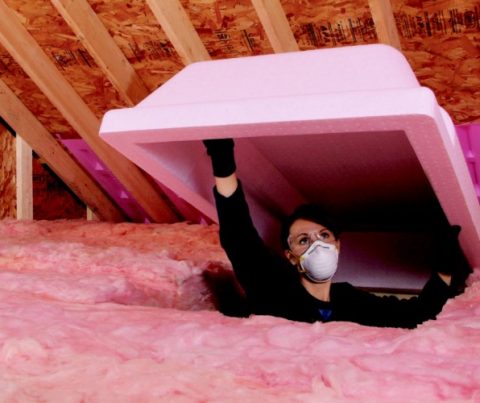Building a white picket fence with a gate to welcome guests at the front of your home, or distinguishing your home’s property line with a chain link fence to divide your home from your neighbors, are two potential fence projects you may be considering for your home. Whether you need to upgrade your existing fence due to wear and tear or you need a completely new fence installed around the perimeter of your home, a fence project can be costly and time consuming. Some fence products can be bought by the foot while other material must be built from scratch, so knowing the cost factors of your fence construction project will help you adjust your time accordingly.
There are many aspects that influence a home improvement schedule, so keep in mind these five factors when planning your fence project timeline.
1. Hiring a contractor
The first step to staying on track with your fence project is to hire the right professional to get the job done. Hiring a fencing contractor, landscaper or contractor will provide you with efficiency and expertise, which are two elements that will directly benefit your project’s success. When searching for a fence installer, make sure to reach out to two or three contractors who can provide you with estimates. This will give you a general idea of how much your fence installation or repair will cost. Be sure you ask to see a full breakdown in pricing including materials, labor costs, permitting, excavation, equipment rental, and clean-up so you can compare your various contractors equally. Hiring smart will ensure your fencing is completed in a timely manner, as the right professional will respect your project requests and plans.
2. Signing a contract
Fencing construction projects can involve obtaining permits and abiding by specific building code regulations. If your project entails structural changes, property lines, or digging and building, having a contract in place with your contractor will be necessary. Not only does a contract protect you and your home, it also acts as a guideline for your project timeline. A contract should include all details regarding your project, from start to finish, including material ordering, delivery dates, as well as checkpoints for progress made. Don’t get caught questioning if you need a contract for your fencing remodel. Not drafting and signing a contract for your project before work begins will only cause greater delays and issues.
3. Site preparation
Whether you are replacing a fence or installing a new fence, it’s important to allocate enough time to prepare the area. This might include removal of the old fence, removing plants or trees, or performing site excavation. If there are questions or concerns about property lines or erosion, make sure to allow enough time for that type of research to take place. If you are sharing the work load with a professional, find out what you need to do before the materials and crew shows up. Not taking care of initial steps can present set backs for your fence project.
4. Purchasing materials
Plan accordingly when purchasing materials for your project. Custom materials, like a specific fencing type or specially-designed aesthetics to enhance curb appeal, may take longer to arrive than other materials. Make sure to order materials early on so that they are ready and available for installation during the time your contractor is present. Shipping delays or problems can impact your schedule by either causing you to reorder items or purchase entirely new ones. Expecting the unexpected, and allowing a little cushion in your project schedule will help set aside extra time for any material mishaps.
5. Availability
Scheduling your fence repair or installation during holidays or in the midst of a busy season may result in your project taking longer than you had planned. Check the availability of your contractor before you hire. While busier contractors may have a greater amount of experience or popularity, they may be less available to devote 100% time and effort to your home’s project. If your schedule is flexible then you can work around your contractor’s availability. But if you want your fence completed by a specific date, make sure to voice your time frame expectations to your contractor before you begin working with him or her.
How to minimize delays
Keeping your fence project on schedule is both the responsibility of the professional as well as the homeowner. If your project is complicated, make things easier by establishing a regular meeting or check-in. Not only will this give both parties the opportunity to review the schedule, it gives everyone a chance to discuss potential delays or issues before they become a problem. Be clear with your requests to get rid of any miscommunications or confusion between you and your contractor. Having a set schedule that you stick to by maintaining open communication with your hired professional will help him or her stay on track with project checkpoint dates. Begin browsing through photos on Porch to find inspiration, hire the right professional, and start planning your fence project.
Top Image Credit: PatriArch Architects




